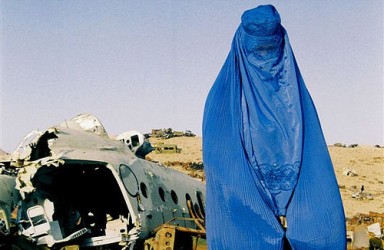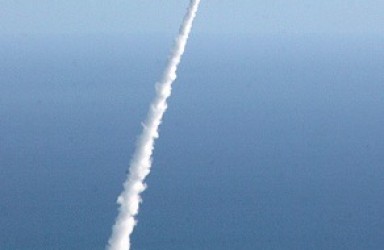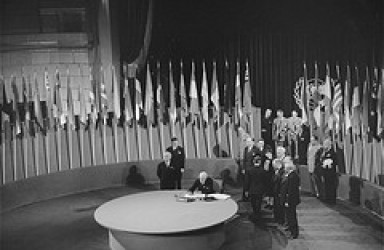Disempowered “Heroes”: Political Agency of Foreign Domestic Workers in East and Southeast Asia
Migrants have come to fill an essential role in the global economy, yet at the same time states are problematizing immigration as a challenge to its security, sovereignty, economy, and social fabric. States with high levels of outward migration celebrate their emigrants as new heroes for the profits they send to their home state.
Nuclear Proliferaiton in the Middle East: the Iran-Israel Problem
A nuclear Iran will go one of two ways. It will either have no obvious effect, the weapon won’t be used for fear of repercussion yet conventional wars will continue; a stalemate. Or, the Middle East will face the prospect of a complete breakdown as either Iran is pre-empted, Israel feels cornered by the likely arms race or technology is leaked; the only recourse available will be war.
Women’s Security in Afghanistan
This essay argues that neo-colonialist discourses were present within the U.S. at the time of the Afghanistan War and served to demonise and essentialise Islamic culture in general, whilst removing from debate the historical political landscape of Afghanistan. Such historical accounts are essential to understand the roots of women’s insecurity in the nation, which persist to this day.
Security vs. Liberty? Is There a Trade off?
It appears there is a trade-off between the security of some and the liberty of others. This perception of a trade-off between security and liberty is particularly convincing when evidence from the on-going war on terror is used to illustrate the argument. It is possible to argue that any trade-off between liberty and security is short-term and illusory.
Why was BMD so attractive to the Bush administration?
The Bush administration’s support for missile-defence was motivated by a desire to maintain freedom of action, and thus unipolar hegemony, vis-à-vis ostensibly un-deterrable rogue states. However, it is evident that BMD is strategically flawed, technically disputed and has the potential to destabilise existing arms dynamics.
On Hamas: A fresh analysis of an old ‘problem’
The dominant Western rhetoric enforces the portrayal of Hamas as a static organisation, its violent and ‘fanatical’ behaviour rendering it as innately characteristic while contradictory evidence is marginalised as irrelevant. This myopic approach has failed to understand Hamas, and for peace ever to be achieved this paradigm must be broken.
The History, Politics and Ideology of Hamas
Hamas ultimately wishes for the end of Israel and the liberation of Palestine, but it thinks almost exclusively in short term goals and is open to the possibility of entering into negotiations. The dominant view in Israel seeks to stop Hamas getting any more of a foothold in Palestine than it already does, doubting the sincerity of its elements of moderation.
The UN during the Cold War: “A tool of superpower influence stymied by superpower conflict”?
Rather than acting as a collective security system, the UN Security Council mostly remained divided throughout the Cold War and efficient UN action was often hindered by superpower conflict. Yet, undoubtedly the Cold War world was better off with the UN than without it.
The Relation of Security To Identity
Security and identity are two concepts that are deeply intertwined on many different levels, and cannot be separated, demonstrating the flaws in the Neorealist position. While identities are intersubjectively constructed and can emerge or disappear over time, they remain relatively fixed entities, and are thus an essential referent object for security.
Is Pre-emptive war ever justified?
Pre-emptive war is universally recognized as an anticipatory use of force. Despite the definition for the terms of a pre-emptive war, whether or not it is justified has become a complex and contradicting subject for states. There is the issue of morality, abiding by international law and comprehending the definition of “imminent threat”.











